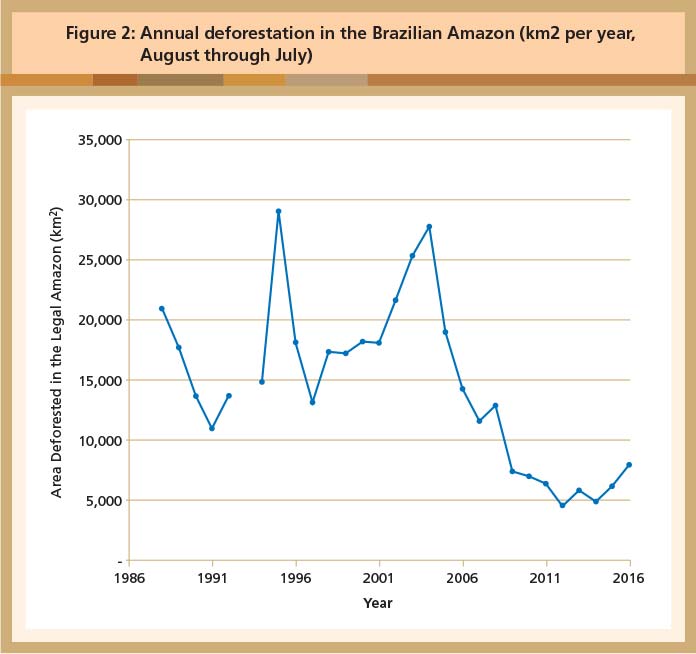



Have we got our priorities backwards?
February, 2017 in Issue 1 - 2017, Comment
This issue of misplaced priorities was made all the more poignant by the recent release of the past year’s annual data on deforestation in the Brazilian Amazon. It’s not good news – almost 8,000 km2 of forest were cleared from August 2015 to July 2016. Figure 2 shows the data for the last two decades, from the Brazilian National Institute for Space Research.

Source: Brazilian National Institute for Space Research: http://www.obt.inpe.br/prodes/index.php
You can see that this is the second year in a row, and the third of the past four years, that deforestation has risen. Although the level is still down about 60% from the average for the decade around the year 2000, the recent trend is in the wrong direction.
Why is this relevant to the issue of priorities? Simply because beef is by far the biggest driver of deforestation in the Amazon, and soybean is the second. There are lots of factors related to the increase (e.g. the political turmoil leading up to the impeachment of Brazil’s President Dilma Roussef and her removal from office in August) but it’s hard to argue that the lack of corporate commitments to ending Amazon deforestation was totally irrelevant.
I don’t want to go overboard with the mea culpa here. Companies have to take responsibility for their actions, and their lack of action. They can’t just say “the NGO community made me do it”. But the Climate Focus report and the new data from the Amazon demonstrate forcefully that when we get the priorities wrong, there are consequences.
Doug Boucher,
Scientific Adviser, Climate and Energy
Union of Concerned Scientists
This blog-post dated Dec 14, 2016, is reproduced with permission.